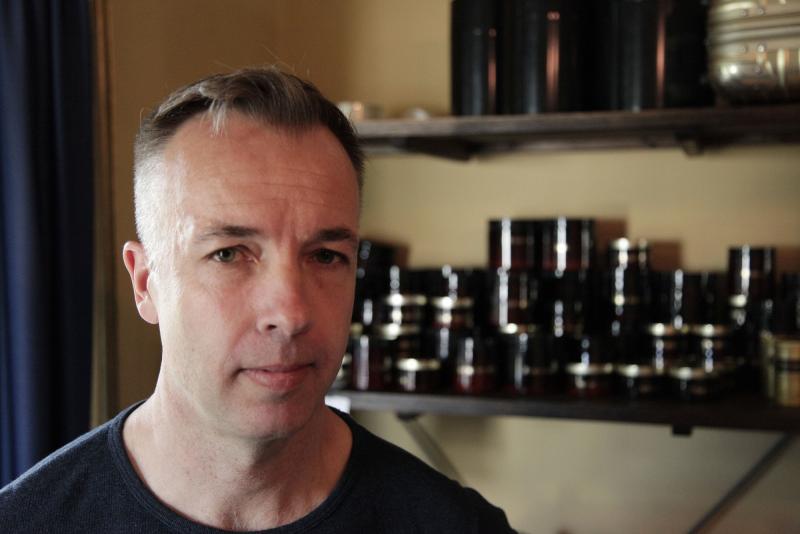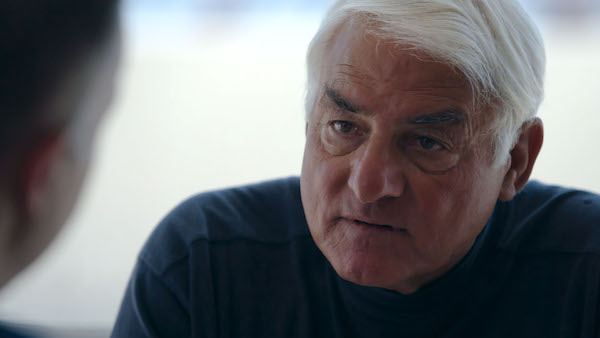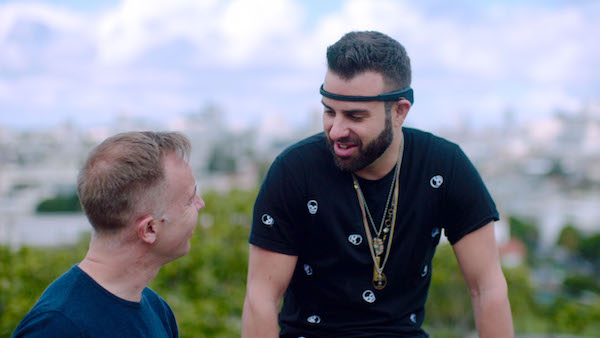Billion Dollar Deals That Changed Your World, BBC Two review - Big Pharma gets a diagnosis: it’s sick | reviews, news & interviews
Billion Dollar Deals That Changed Your World, BBC Two review - Big Pharma gets a diagnosis: it’s sick
Billion Dollar Deals That Changed Your World, BBC Two review - Big Pharma gets a diagnosis: it’s sick
Jacques Peretti's look at the pharmaceutical industry was a bitter pill to swallow

“What if the way people understand the world is wrong? What if it isn’t politicians that shape the way people live their day-to-day lives, but secret business deals?” This is the question at the heart – and at the start – of Jacques Peretti’s new three-part documentary series.
Now my understanding of the world is that big businesses are constantly trying to shape new and bafflingly complex ways they can mine fresh, rich seams of our cash. They’re basically looking to frack us at every available opportunity. Thus Peretti’s opening gambit initially seemed about as contentious as the proposition that David Davis is an insufferable tossbag. Having said that, when I was little, I was convinced that I was being spied on via invisible cameras mounted in my bedroom, so maybe I’m just horrifically paranoid from the outset.
Peretti has a calm, persuasive air and tied strands together with a convincing clarity
Not to worry though, if I am, there’s almost certainly a pill that can help me – but at what cost? Looking at deals in the health industry for this first episode, Peretti started with the vast expansion of the Diagnostic and Statistical Manual of Mental Disorders (DSM) in 1980. The increase in recognised conditions it contained helped to more accurately and effectively diagnose mental health conditions and was a watershed moment for GPs. However, it also meant more potential patients and, before you could say, “increased sweating, diarrhoea and a loss of sexual appetite” Pfizer – which had recently brought Sertraline to the market – stumped up the money to develop an assessment test to see which of us was depressed. The head of the DSM project, Robert Spitzer, has previously suggested that these events may have led to the needless medicalisation of 20-30% of the USA's population.  It was a view echoed by Spitzer’s colleague, Allen Frances (pictured above). He also pointed out that, as a diagnostic tool, the DSM was, and remains, invaluable. It can help patients to feel they have a recognised illness; help them to see it as a medical condition rather than a state of being. Of course, a scalpel is also an invaluable tool that can benefit patients, but in the hands of a ruthless salesman, it could just as easily slit a well person’s throat in order to stuff a blisterpack of happy pills down it.
It was a view echoed by Spitzer’s colleague, Allen Frances (pictured above). He also pointed out that, as a diagnostic tool, the DSM was, and remains, invaluable. It can help patients to feel they have a recognised illness; help them to see it as a medical condition rather than a state of being. Of course, a scalpel is also an invaluable tool that can benefit patients, but in the hands of a ruthless salesman, it could just as easily slit a well person’s throat in order to stuff a blisterpack of happy pills down it.
The question of over diagnosis in grown-ups is a complex one, and was presented as such, but the light Peretti shone on the rise of the number of children classed as ADHD was simply shocking. It was, he said, the research of Joseph Biederman, Thomas Spencer and Timothy Wilens that led to strong, anti-psychotic drugs – drugs made by companies who were paying these doctors – being dished out to children as young as two years old. Wilens was interviewed in a short segment here and showed no remorse for being such a shit of a shill. I’d happily diagnose him with a broken leg just before kicking him down a flight of stairs.
Just to be clear, part of the legacy he leaves is 10,000 two- to three-year-olds in the US on Ritalin and Adderall. Ten thousand.
Some people, of course, take this stuff willingly and with no real need, like Eric (pictured below with Peretti), who takes drugs to improve his efficiency or, on the evidence we saw here, type really fast. Needless to say, Eric is not a guy I would consider having a drink with – or indeed any drugs – although the light relief he provided was welcome. The last two scandals that came under Peretti’s microscope affect us all, ill or well. The pricing of generic drugs – essentially a scam which can see the cost of drugs rise when there’s no competition – sees big pharma companies ripping off an NHS already straining at the seams. Thankfully, the legal loophole that allowed this has since been closed, but the attitude that exploited it remains.
The last two scandals that came under Peretti’s microscope affect us all, ill or well. The pricing of generic drugs – essentially a scam which can see the cost of drugs rise when there’s no competition – sees big pharma companies ripping off an NHS already straining at the seams. Thankfully, the legal loophole that allowed this has since been closed, but the attitude that exploited it remains.
One issue that remains far from resolved is one that was intended to help our health service by introducing AI into the diagnostic process. In 2015, Google owned-company Deep Mind did a deal with the Royal Free Trust that saw them gain access to 1.6 million confidential medical records without handing over a penny. In fairness, this was in order to build algorithms to pre-empt disease in patients, but it was still a huge data protection issue. Plus it's a bit like buying a hugely expensive car off someone and then finding that you have to supply the engine. For free.
Overall, it felt a coolly balanced and well-researched film by Peretti. He has a calm, persuasive air and tied strands together with a convincing clarity. I’m not entirely sure that the conclusions were as earth-shattering as he’d like us to think (people being sacrificed on the altar of big business? Who’d have seen that coming?) but the fine detail was no less diverting for that.
rating
Explore topics
Share this article
Add comment
The future of Arts Journalism
You can stop theartsdesk.com closing!
We urgently need financing to survive. Our fundraising drive has thus far raised £49,000 but we need to reach £100,000 or we will be forced to close. Please contribute here: https://gofund.me/c3f6033d
And if you can forward this information to anyone who might assist, we’d be grateful.

Subscribe to theartsdesk.com
Thank you for continuing to read our work on theartsdesk.com. For unlimited access to every article in its entirety, including our archive of more than 15,000 pieces, we're asking for £5 per month or £40 per year. We feel it's a very good deal, and hope you do too.
To take a subscription now simply click here.
And if you're looking for that extra gift for a friend or family member, why not treat them to a theartsdesk.com gift subscription?
more TV
 The Monster of Florence, Netflix review - dramatisation of notorious Italian serial killer mystery
Director Stefano Sollima's four-parter makes gruelling viewing
The Monster of Florence, Netflix review - dramatisation of notorious Italian serial killer mystery
Director Stefano Sollima's four-parter makes gruelling viewing
 The Diplomat, Season 3, Netflix review - Ambassador Kate Wyler becomes America's Second Lady
Soapy transatlantic political drama keeps the Special Relationship alive
The Diplomat, Season 3, Netflix review - Ambassador Kate Wyler becomes America's Second Lady
Soapy transatlantic political drama keeps the Special Relationship alive
 The Perfect Neighbor, Netflix review - Florida found-footage documentary is a harrowing watch
Sundance winner chronicles a death that should have been prevented
The Perfect Neighbor, Netflix review - Florida found-footage documentary is a harrowing watch
Sundance winner chronicles a death that should have been prevented
 Murder Before Evensong, Acorn TV review - death comes to the picturesque village of Champton
The Rev Richard Coles's sleuthing cleric hits the screen
Murder Before Evensong, Acorn TV review - death comes to the picturesque village of Champton
The Rev Richard Coles's sleuthing cleric hits the screen
 Black Rabbit, Netflix review - grime and punishment in New York City
Jude Law and Jason Bateman tread the thin line between love and hate
Black Rabbit, Netflix review - grime and punishment in New York City
Jude Law and Jason Bateman tread the thin line between love and hate
 The Hack, ITV review - plodding anatomy of twin UK scandals
Jack Thorne's skill can't disguise the bagginess of his double-headed material
The Hack, ITV review - plodding anatomy of twin UK scandals
Jack Thorne's skill can't disguise the bagginess of his double-headed material
 Slow Horses, Series 5, Apple TV+ review - terror, trauma and impeccable comic timing
Jackson Lamb's band of MI5 misfits continues to fascinate and amuse
Slow Horses, Series 5, Apple TV+ review - terror, trauma and impeccable comic timing
Jackson Lamb's band of MI5 misfits continues to fascinate and amuse
 Coldwater, ITV1 review - horror and black comedy in the Highlands
Superb cast lights up David Ireland's cunning thriller
Coldwater, ITV1 review - horror and black comedy in the Highlands
Superb cast lights up David Ireland's cunning thriller
 Blu-ray: The Sweeney - Series One
Influential and entertaining 1970s police drama, handsomely restored
Blu-ray: The Sweeney - Series One
Influential and entertaining 1970s police drama, handsomely restored
 I Fought the Law, ITVX review - how an 800-year-old law was challenged and changed
Sheridan Smith's raw performance dominates ITV's new docudrama about injustice
I Fought the Law, ITVX review - how an 800-year-old law was challenged and changed
Sheridan Smith's raw performance dominates ITV's new docudrama about injustice
 The Paper, Sky Max review - a spinoff of the US Office worth waiting 20 years for
Perfectly judged recycling of the original's key elements, with a star turn at its heart
The Paper, Sky Max review - a spinoff of the US Office worth waiting 20 years for
Perfectly judged recycling of the original's key elements, with a star turn at its heart
 The Guest, BBC One review - be careful what you wish for
A terrific Eve Myles stars in addictive Welsh mystery
The Guest, BBC One review - be careful what you wish for
A terrific Eve Myles stars in addictive Welsh mystery

Comments
You say the loophole over the
That's very interesting and
That's very interesting and thanks very much for pointing it out. I was, to be honest, going from what the programme claimed rather than any deeper knowledge of the area. I'll look into that - it's an absolute scandal.